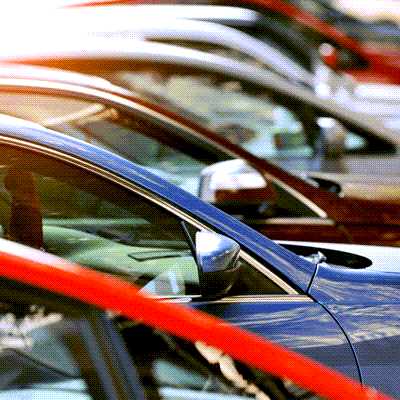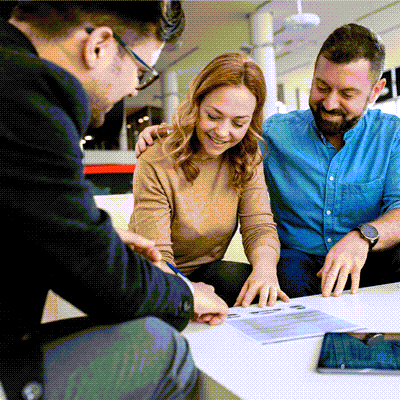How to determine used car value
- The used car market has slowed in Australia and used car values have been declining1
- There are some popular makes and models that tend to hold their value
- If you’re selling your car, make sure your car insurance provides coverage until you sell
If you’re considering selling or trading in your car, keep in mind that the used car market in Australia has slowed. With an average of 46.4 days cars to sell a used car, it’s taking longer to sell due to oversupply.2
Meanwhile, the values of used cars have been declining3 – meaning the pandemic peak of used car valuations in 2021 is over.4
So, if you’re looking to value a used car, here are some tips on how to calculate the price, and the key factors affecting what buyers are willing to pay.

What factors determine used car values?
One of the most important steps in valuing your used car and setting a price is understanding what impacts your car’s value.
Your car’s age
As your car gets older, its value decreases. Highly sought-after, rare, or vintage vehicles can buck this trend, as can changes to the market. But generally, a newer second-hand car of the same make, model, kilometres, and condition may sell for more than an older one.
Distance travelled
The lower the kilometres, the better your used car value. An increase in kilometres often correlates to an increase in a vehicle’s wear and tear.
Your car will likely be more valuable if it has done fewer kilometres than average for its age. Generally, around 15,000km per year is considered the average distance for a car to travel in Australia.5
Car make and model
Popular and reputable models and brands typically hold their value and command a higher price because there’s more demand for them in the second-hand market.
So, what makes and models have good used car values Australia-wide? According to the Australian Automotive Dealer Association, the following are the top 10 most popular second-hand vehicles as of September 2024.6
- Ford Ranger
- Toyota HiLux
- Toyota Corolla
- Toyota RAV4
- Mitsubishi Triton
- Toyota Camry
- Hyundai i30
- Mazda 3
- Mazda CX-5
- Volkswagen Golf
General condition
The interior, exterior and mechanical condition of your car can also affect its value. The used car value lessens with any body or paint damage. The condition and functionality of things like upholstery, electronics, tyres, lights, and mechanical parts also affect used car value.
Engine and transmission
Your car’s valuation can vary depending on the transmission type (automatic or manual). Automatics are typically more expensive to buy new. Second-hand automatics are also usually worth more, but exceptions include some off-road, sports and luxury cars.
The car’s history and registration
Previously written-off cars, or those with serious repairs, may hold less value than cars with a clean history. Buyers might pay more if the car hasn’t been in an accident and has a documented service history. Registered vehicles with roadworthy certificates could also secure higher sales prices.
Car features
Non-standard features like leather seats or automated driver assistance systems can also increase the resale value of your car. Modifications and custom extras like oversized wheels, stereo speakers or a rear spoiler don’t necessarily add value to your car and could even lower it.
Compare similar used car values Australia-wide
Looking at comparable cars for sale online can help you find the average price range for a vehicle in the same condition as yours. Prices can fluctuate depending on location, so it’s best to compare similar used car values in your local market.
On websites like Carsales and CarsGuide, you can search used cars for sale by make, model, year, transmission type and more. Remember that advertisers list their asking price, yet often sell for a lower negotiated price. Keep this in mind when considering how to work out your used car value.

Get a car valuation
A valuation can provide a detailed estimate of a car’s value based on key factors. For some, that estimate can change dramatically over the years.
For a quick online valuation, it can be useful to plug your car’s details into a free online valuation tool.
Popular tools include:
- carsales.com’s car valuation tool
- RedBook’s online research and used car value tool
- Drive’s online calculator
Most online tools give you an average price range for your used car in today’s market, broken down by private sale price versus trade-in price.
For a more personalised online report, sellers can use RedBook’s online Personal Valuation Report. It considers details like the kilometres travelled, the car’s condition, and any factory and aftermarket options.
Online valuation reports usually provide automated estimates without needing an in-person inspection. If you’re after a more detailed appraisal, taking your car to an independent valuer may offer you a more precise estimate that better considers your car’s condition and features.
Whether you decide to sell privately or trade in – an independent report may help you negotiate confidently.
Protect your asset with car insurance
If you’re buying a new car or holding on to your old one, it’s important to protect it with the right insurance. If you’re selling, insuring your car until the sale is final means you and your car stay protected until the last minute.
This QBE Comprehensive Car Insurance is issued and underwritten by QBE Insurance (Australia) Limited (ABN 78 003 191 035, AFSL 239545). Any advice provided is general only and has been prepared without taking into account your objectives, financial situation or needs and may not be right for you. To decide if this product is right for you, please read the QBE Comprehensive Car Insurance Product Disclosure Statement (PDS) and Target Market Determination (TMD) for QM8505 QBE Comprehensive Car Insurance.
This content is brought to you by QBE Insurance (Australia) Limited (ABN 78 003 191 035, AFSL 239545) (QBE). QBE makes no warranty or guarantee about the validity, currency, accuracy, completeness, or adequacy of the content. Readers relying on any content do so at their own risk. It is the responsibility of the reader to evaluate the quality and accuracy of the content. Reference in this content (if any) to any specific product, process, or service, and links from this content to third party websites, do not constitute or imply an endorsement or recommendation by QBE and shall not be used for advertising or service/product endorsement purposes.
1 AIR: Used Cars Taking Longer to Sell Amid Oversupply | AADA
2 AIR: Used Cars Taking Longer to Sell Amid Oversupply | AADA
3 AIR: Used Cars Taking Longer to Sell Amid Oversupply | AADA
4 Why used car prices are still skyrocketing in Australia | news.com.au
5 How many kilometres is good for a used car? | Drive.com.au
6 Automotive Insights Report (AIR) – September 2024 | AADA










